Rural communities in Zambia have been strongly affected by climate change and other issues such as deforestation, poverty and malnutrition.
To tackle all of these issues, the Global Ecovillage Network (GEN) developed a pioneer project adopting a systemic approach, integrating strong social and ecological aspects, but also the economic dimension.
Green Economy and Social Enterprise for Climate Resilient Communities pilot project was implemented 2018-2020 in several rural communities in the regions of Kapiti Mposhi and Monze in Zambia, in cooperation with ReScope Programme. This pilot project is a continuation of our wider greening schools partnership in Africa.
Schools are our entry points to engage with the local communities. Villagers, including the farmers, teachers, parents and youth, joined workshops in topics such as agroecology, rocket stoves, natural building and social enterprise.
As a result, 8 social enterprises were created in these local communities. The youth is empowered, communities become more resilient to climate change, households improve their economic status.
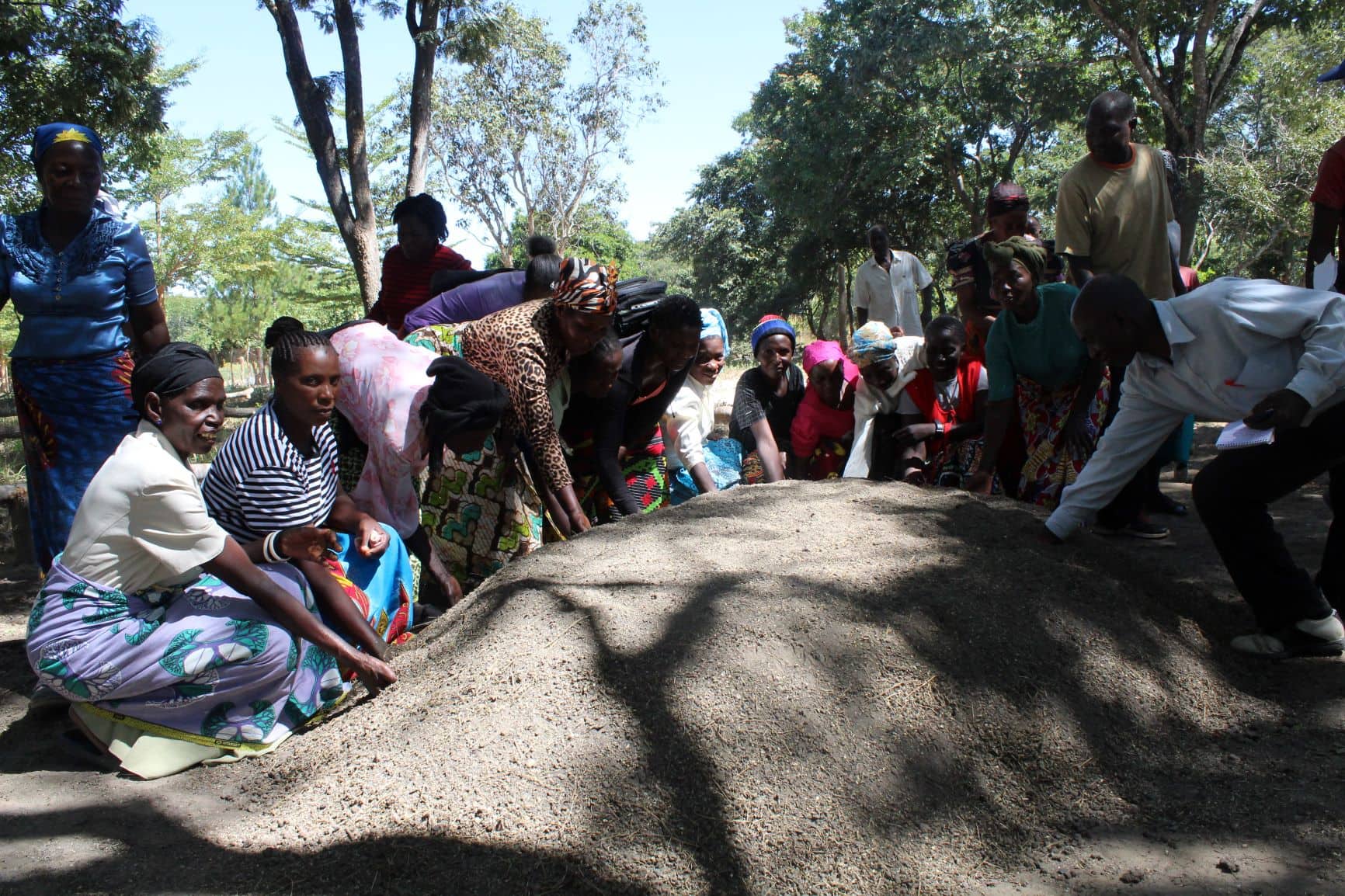
A Green Economy approach
The approach consisted of a strategy for Social Enterprise development in three groups:
- Production group: This group grew crops, the raw materials. Examples included lemongrass for harvesting as an essential oil, or planting drought-tolerant and perennial crops such as moringa, neem, castor beans.
- Value-addition group: This group processed raw materials, transforming them into products with a higher economic value. Diversity is key, as part of one permaculture principle applied in this project.
- Marketing group: This group took the final step by creatively presenting the value-added products to the market surrounding the traditional villages and across the country.
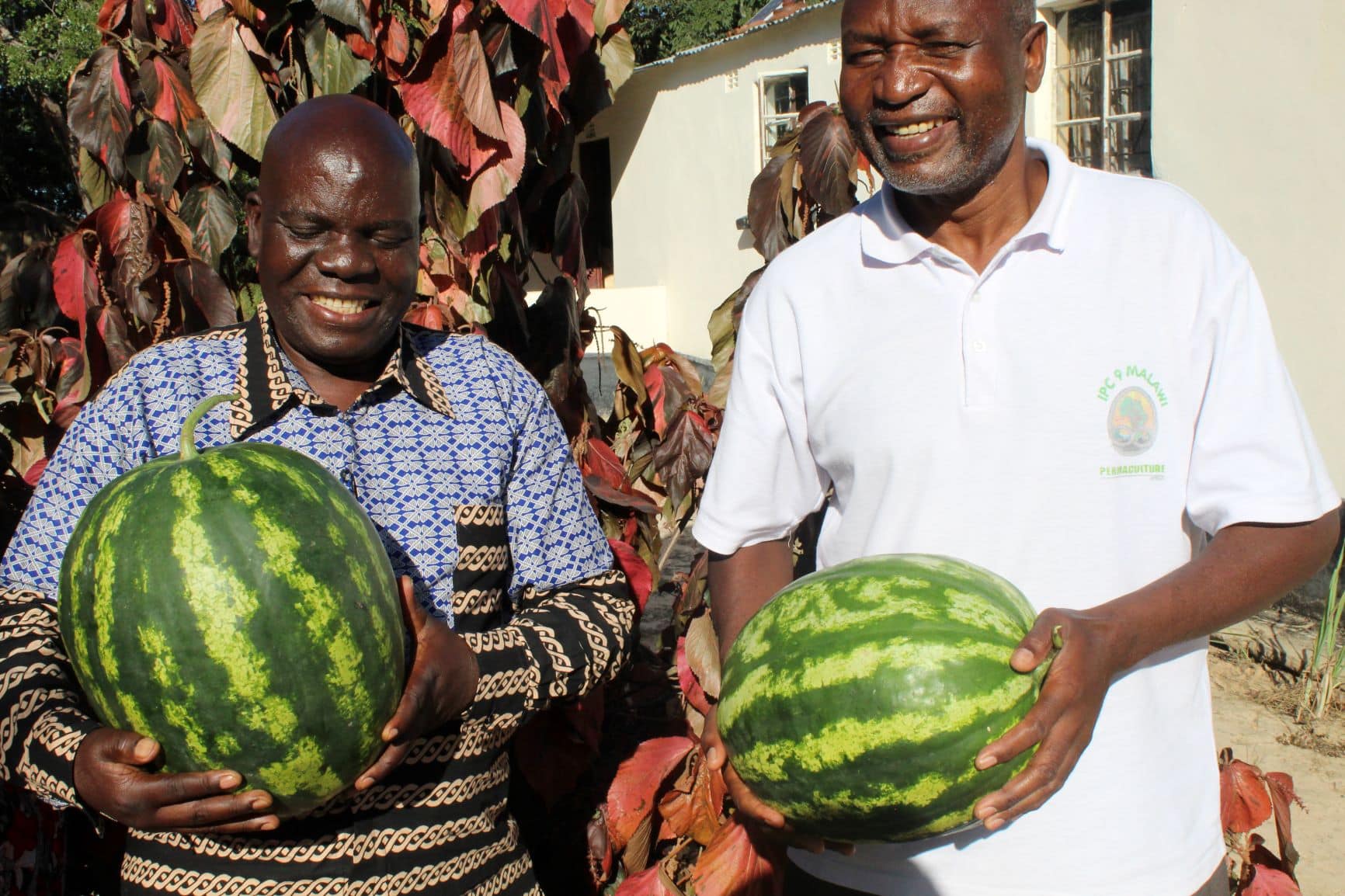
Outcomes of the Green Economy project
- 360+ villagers (100+ of whom were women) benefited from training in social enterprise creation
- 100+ farmers have adopted organic and sustainable ways of farming (such as planting climate resilient food forests)
- 6 schools implemented demonstrations for water conservation methods, and
- 8 social enterprises were established with a strong emphasis on the participation of women and vulnerable youth.
A significant increase in household income was reported for several families. Our innovative social enterprise model was the production of lemongrass oil to be sold to the international market.
Food forests were established and based in permaculture principles, and with climate resilient crops such as cassava, pigeon peas, moringa, legume trees, bambara nuts, mangoes, sweet potatoes, neem, paw paws and others. Diversity is key for climate resilient (and for good nutrition).
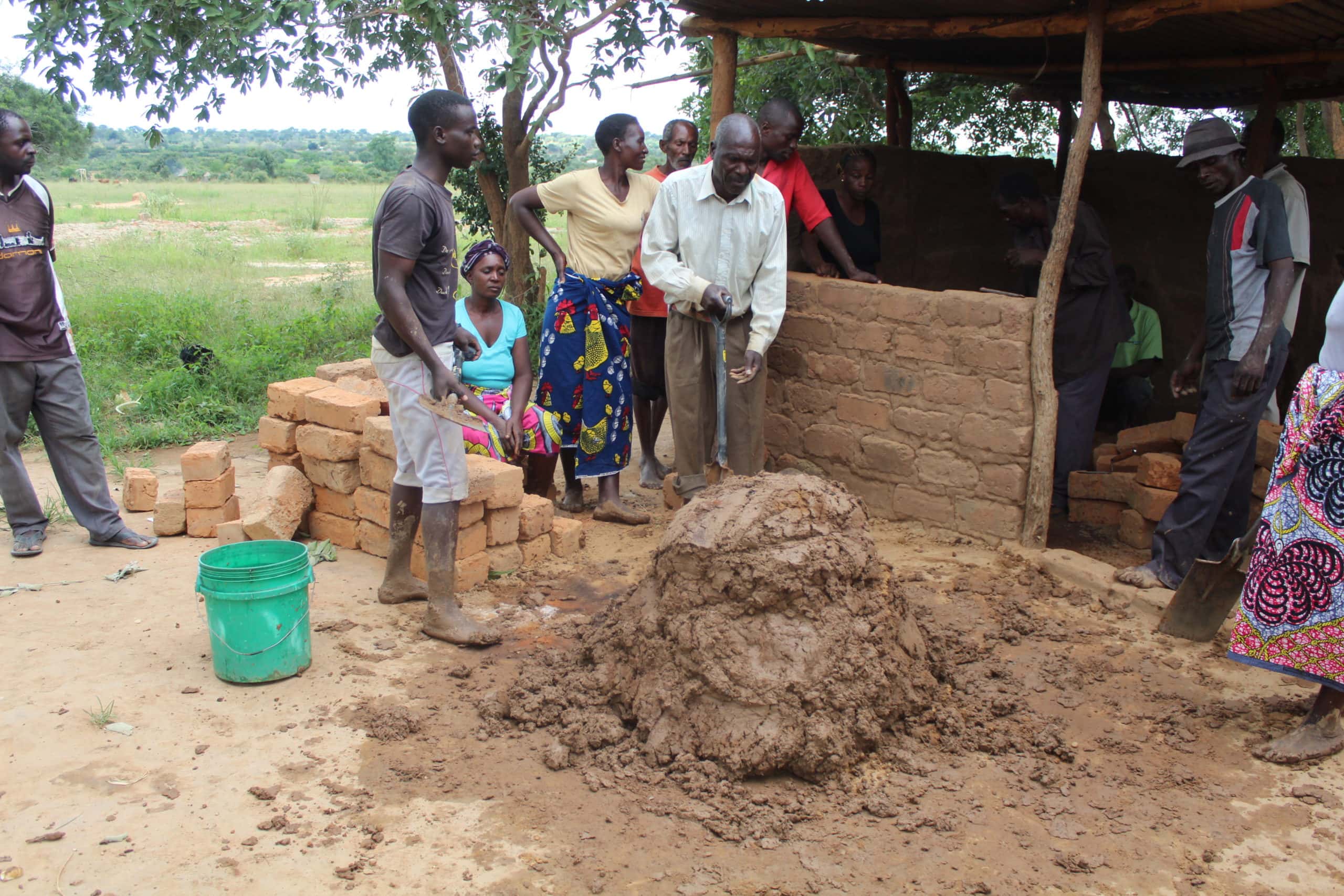
Learn more about GEN’s Green Economy project
We kindly invite you to join us in a Free webinar next Wednesday on the 18th November at 12-14 GMT, entitled “Greening schools and Green Economy, schools as entry points towards climate resilient communities”. Registrations are closed, but you can watch it for free. To watch, just follow the Global Ecovillage Network facebook page and switch notifications on.
We have done other webinars on this topic in the past weeks and it has been a success, with dozens of people from all over the world joining us. This webinar showcased how schools can apply ecovillage principles in their learning as well as the rich potential for community development through schools. We invited dynamic educators bringing ecovillage principles and methodologies to formal and informal learning environments:
Greening schools and Green Economy Manual
Another outcome of the project is that GEN created a Manual on this very topic that will be launched in soon (by mid November) and available for download in our website.
Join our newsletter to be notified when the Greening schools and Green Economy Manual is available:
Know more about the Rescope Programme
The ReSCOPE Programme was born out of the pioneering work of promoting Permaculture in schools in Zimbabwe in the mid 1990’s which led to the establishment of the Schools and Colleges Permaculture (SCOPE) Zimbabwe. In 2006 the ReSCOPE Programme was set up to promote this work in the region of east and southern Africa. Now the programme has country chapters in Kenya, Malawi, Uganda, Zambia and Zimbabwe.
Learn more about the project on this inspiring interview with Mugove Nyika, the director of ReScope when they were awarded the Hildur Jackson Award in 2019.
Green Economy and Social Enterprise for Climate Resilient Communities Funding
Our pilot project in Zambia has been funded by the Scottish Government, via the Climate Justice Innovation Fund from the Corra Foundation. Much appreciation for them, for allowing us to create visible change for the lives of hundreds of people in Zambia.
This project has seen several UN SDGs (Sustainable Development Goals) being tackled, such as 1) No poverty, 2) Zero hunger, 4) Quality education, 5) Gender equality, 7) Affordable and clean energy, 8) Decent work and economic growth, 11) Sustainable communities, and 13) Climate action.
Do want to support our work? Consider becoming a Friend of GEN!
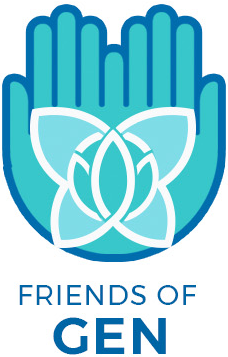 As a Friend of GEN, you become a sustaining contributor to the work of the Global Ecovillage Network. Together we can continue to implement sustainable solutions and help catalyze the power of community for a regenerative future.
As a Friend of GEN, you become a sustaining contributor to the work of the Global Ecovillage Network. Together we can continue to implement sustainable solutions and help catalyze the power of community for a regenerative future.
By becoming a Friend of GEN you will receive exclusive benefits to bring you closer to GEN’s work on the ground and connect with communities worldwide. Friends of GEN sustain the work of the Global Ecovillage Network through creating a grassroots community of supporters for ecovillage solutions and collaboration. Learn about the levels of giving below and find the one that is right for you.

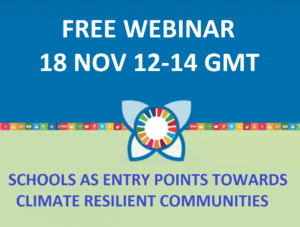
 GEN Ambassador
GEN Ambassador